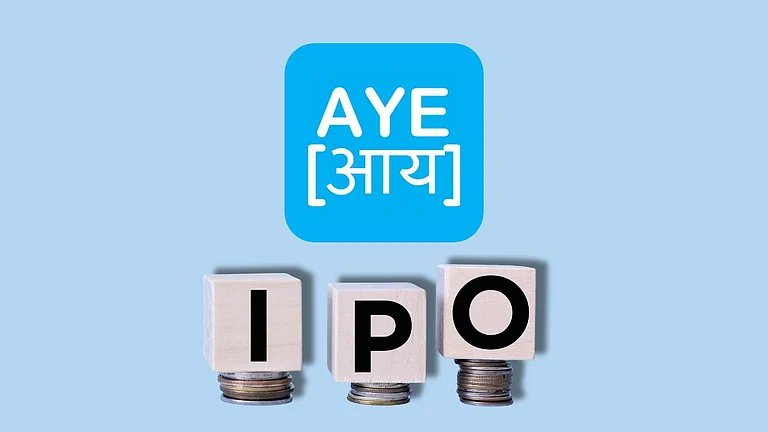Finance Minister Nirmala Sitharaman’s statement in Parliament that a “global collaboration” would be needed to make a ban on cryptocurrencies and digital assets effective has sent positive signals for several stakeholders in the industry.
They say that effectively what this means is that the government may not ban digital assets anytime soon. However, some experts maintain that the FM just stated a fact on the international nature of cryptocurrencies and the negative sentiment continues.
Sitharaman said in Parliament on Monday that the Reserve Bank of India (RBI) had expressed its reservations in the past.
After enumerating RBI’s concerns, the FM observed, “Cryptocurrencies are by definition borderless and require international collaboration to prevent regulatory arbitrage. Therefore, any legislation for regulation or for banning can be effective only after significant international collaboration on evaluation of the risks and benefits and evolution of common taxonomy and standards.”
What Do Experts Say?
Some experts are encouraged to read Sitharaman’s statement as an indication that the government is softening its stance against cryptocurrencies as it seeks global consensus.
“I was very encouraged to read the FM’s statement that it is infeasible to ban crypto in the absence of global consensus. Globally, the regulatory stance towards crypto has been turning increasingly conducive over the years. So, if we put two and two together, it seems like any further discussion around ‘banning’ of crypto in India is now not on the table and that is a very positive sign,” says Ajeet Khurana, founder of Reflexical, a Web 3.0 company, and a global crypto advisor.
Purushottam Anand, founder and CEO of Crypto Legal, a law firm, says that the government’s stand that any legislation for regulation or banning digital assets can only be effective after global collaboration is factually true and also highlights a marked dependency on global regulatory sentiments. "As any effective global collaboration is likely to take some time, the stand of the government contributes to present regulatory uncertainty," he says.
But not all are of the same view. “India retains its discomfort with cryptocurrencies, and their use as anything but a speculative and taxable asset class. Her comment regarding international collaboration simply signals that the cross-border nature of crypto assets necessitates international collaboration for any regulatory moves to be effective," says Utkarsh Sinha, managing director, Bexley Advisors, a boutique investment bank firm.
Anshul Rustaggi, a blockchain and crypto expert, feels the government has been harsh on crypto this year and is now on the same page with RBI, which is primarily concerned about dollarisation of the rupee via cryptos. “Overall, such statements, though, are denting the confidence of all Web 3.0 entrepreneurs and users,” he says.
Global Consensus Is Important
Sharat Chandra, vice-president of research and analytics, EarthID, a blockchain company says nation-states have realised the futility of banning crypto tech and the downside of curbing innovation, therefore there is a broader consensus on cooperation and co-ordination for crypto regulation.
“G20 nations have agreed on cross-border collaboration for regulating crypto. US Treasury has developed a framework for international crypto regulation. Indian regulators can't afford an isolationist approach and eventually have to follow the global precedence on the regulation of virtual digital assets,” he adds.
RBI’s Concerns
While replying to questions on cryptocurrency by MP ThirumaaValavanThol, the FM highlighted the concerns raised by RBI in the past.
“RBI has been cautioning users, holders and traders of Virtual Currencies (VCs) vide public notices on December 24, 2013, February 01, 2017 and December 05, 2017 that dealing in VCs is associated with potential economic, financial, operational, legal, customer protection and security related risks,” the statement read.
RBI, through a circular issued on April 6, 2018, had prohibited its regulated entities from dealing in virtual currencies. However, the circular was set aside by the Supreme Court on March 4, 2020.
“In view of the concerns expressed by the RBI on the destabilising effect of cryptocurrencies on the monetary and fiscal stability of a country, the RBI has recommended for framing of legislation on this sector. The RBI is of the view that cryptocurrencies should be prohibited,” she said.
Sitharaman further said that RBI had also advised regulated entities to “continue to carry out due customer diligence processes for transactions in VCs, in line with regulations governing standards for Know Your Customer (KYC), Anti-Money Laundering (AML), Combating of Financing of Terrorism (CFT), obligations under the Prevention of Money Laundering Act (PMLA), 2002, etc. in addition to ensuring compliance with relevant provisions under Foreign Exchange Management Act (FEMA) for overseas remittances”.
Earlier in the year, the government introduced steep taxation on cryptos to discourage investors. “The government has managed to shut all these through tax and TDS but inevitably it has killed the development of the industry too. Today, crypto is more of an investment class than just a currency. It has driven a fundamental change in how trust and transparency work in the system,” says Tarun Modi, chartered accountant and blockchain expert.
It remains to be seen which direction the government takes on virtual digital assets in times to come.













